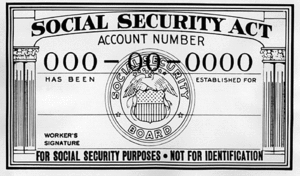
Image via Wikipedia
Personal information can be breached in various ways, including hackers gaining unlawful access to computer files containing student information (even SSNs), or a dishonest or disgruntled university employee obtaining computer files containing sensitive records and then selling the records to savvy identity thieves.
LifeLock recommends individuals who have been informed of a potential breach of personally identifiable information should;
* Do your research - find out what information has been compromised. This will help you identify the risks associated and the best next steps
* Consider utilizing an ID theft protection service - Services such as the advanced LifeLock Command Center protection suite offers members LifeLock Personal Breach Detection service, which actively monitors unregulated global networks for your identity information. If they find you are at risk, they will alert you by e-mail and help protect you against accidental personal information disclosures, not just from your personal computer, but many other computers that may store your personal information and participate in peer-to-peer file-sharing
* Place a fraud alert - Contact one of the three credit bureaus to place a fraud alert on your credit. You will only need to contact one, and then that bureau will contact the other two on your behalf. With a fraud alert in place, creditors should be notified that you are concerned about identity theft when they receive a new application, helping to stop the extension of credit in your name to a thief
* Repeat as needed - You can renew your fraud alert every 90 days. It is important to note that you will need to renew in order for it to stay in effect. (You may also remove a fraud alert at any time.)
* Request your free credit report - Do this as soon as possible so that you are able to see evidence of an identity theft appear on your credit report, should one exist.
Universities or colleges nationwide looking to educate faculty and students on how to better protect their personal information and help avoid personal identifying information from being breached can take advantage of the LifeLock Speakers Series program. The Speakers Series is a free educational program targeted toward schools, businesses, and other organizations. For more information or to schedule a Speakers Series presentation, please visit Free Identity Theft Education.
It is probably no surprise to parents that identity theft continues to be the fastest growing type of fraud. But what may surprise students and parents alike -is that people in the 18 to 29 age range are the fastest growing group of victims. MORE
Sources:
Privacy Rights Clearing House
LifeLock.com
PublicOpinionOnline.com


 NEWSLETTER SIGN UP
NEWSLETTER SIGN UP SUBSCRIBE
SUBSCRIBE CONTACT
CONTACT

















Leave a comment